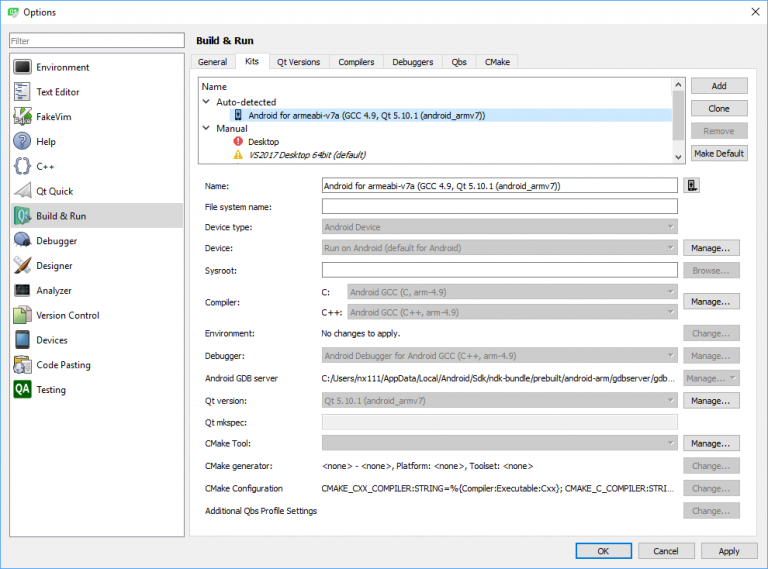

For some reason, it seems compilation still requires XamarinAndroid.Ģ> Adding assembly reference for, Version=3.1.1.0, Culture=neutral, PublicKeyToken=null, recursively. I've replaced with and renamed the created objects. You can then use your application as before, with the same NugetPackage without any other modification.įor comodity, find the source of my "SQLitePlatformAndroidN" provider attached here! Var platform = new .SQLitePlatformAndroidN () Var platform = new .SQLitePlatformAndroid ()
#ANDROID NDK SQLITE ANDROID#
I then just added my new platform provider project in the references of my Android project, and modified this line: The only other modification needed by my provider was to tell him to use the SQLite.Net NugetPackage for references instead of the SQLite.Net source project. I just wrote my "SQLitePlatformAndroidN", by copying the SQLitePlatformAndroid project and modifying the DllImport ressource.
#ANDROID NDK SQLITE UPDATE#
įinally, it would be nice that someone try to push an update to this project, as it seem better to use the official Nuget Package or the official GitHub repo, in my opinion.Īctually, you can keep the whole NugetPackage as is, as the code you have to fix is only located in the Platform provider. I was having some trouble to find the DLL, so i have installed the Mono library on my computer in order to find it, downloaded hereĪt the moment i don't have already tested with my business project, but the test suite included with the Source Code seem to return the same results, so it's fine.įinally, even with the test suite, juste look the Debug output of Visual Studio (or Dalvik), and be sure that it load now /bin/lib/libsqlite3_xamarin.so instead of /bin/lib/libsqlite3.so (or something like that). I'm not totally sure, but i have set "Copy Local" to "true". Private const string DllName = "libsqlite3_xamarin" Īnd 2. Private const string DllName = "sqlite3"

Python is not a platform language on iOS SDK, C and C++ are platform languages on iOS, Android and UWP SDKs.Ī good lesson in terms of productivity, is to only use SDK supported languages when writing production code any OS. The pain of using UIKit with Python is comparable to using JNI.

> iOS also is not easy to use with any language, it assumes ability to link with a module written in ObjC. IOS development has moved into that model with bitcode on iOS 9.Īlso there have been several C and C++ compilers across the years that could generate single binary on any CPU architecture.įor example compilers for OS/400, TenDRA, PocketPC.
#ANDROID NDK SQLITE WINDOWS#
UWP was designed to be architecture independent since Windows Phone 8.Īpplication's bytecode is uploaded to the store and gets compiled to each supported architecture using the so called "cloud compiler". iOS and UWP also were not designed with the intent to use single binary on any CPU architecture, independently from any appstore that could recompile for you.


 0 kommentar(er)
0 kommentar(er)
